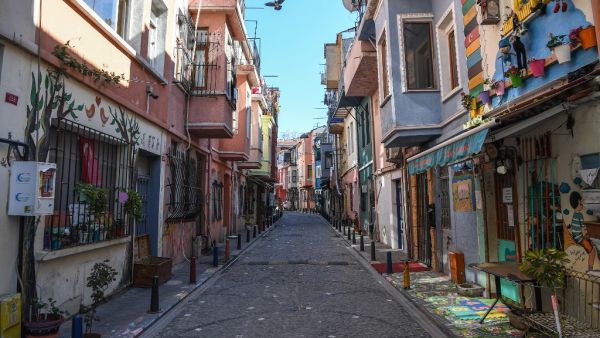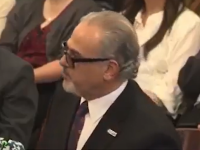A poorly executed curfew to slow the spread of coronavirus in Turkey’s biggest cities is shaking up the balance of power in the country’s government.
Interior Minister Suleyman Soylu has boosted his position as a potential successor to President Recep Tayyip Erdogan even though he botched the two-day lockdown beginning on April 10 and said he would step down, analysts say. Erdogan rejected Soylu’s resignation from his post.
“Soylu has got even stronger both in the cabinet and the AKP,” Erdogan’s ruling party, journalist Murat Yetkin wrote on his political blog, Yetkinreport.
The minister handed in his resignation after hundreds of thousands of Turks stormed out of their apartments to buy supplies late on April 10 following an Interior Ministry announcement that gave citizens only a two-hour warning before the start of the curfew. Video posted on social media showed tightly packed crowds of shoppers in front of stores and bakeries. Social distancing rules and anti-corona measures like face masks were mostly ignored.
Experts say the incident set back efforts by Turkish authorities to fight the spread of the virus that has killed around 1,300 people and infected roughly 61,000 in Turkey.
“The work of 30 days fell victim to cola and bread,” Turkish media quoted Tevfik Ozlu, a member of a scientific council advising the government in the fight against the pandemic, as saying.
Soylu took full responsibility and said he did not expect people to run out in such numbers. The two-day curfew was designed to keep citizens in Istanbul and 30 other population centers, home to a combined 64 million of Turkey’s 80 million people, confined to their apartments during April 11 and 12, a sunny and warm spring weekend.
The opposition harshly criticised the government for the poorly coordinated announcement. “City administrations were not informed, the Health Ministry was not informed,” said Meral Aksener, leader of the opposition IYI Party. “No science, no sense, no plan, no programme.”
Erdogan’s government says it has taken decisive measures against the pandemic since the first case of a coronavirus infection was detected in the country a month ago. Schools, universities, restaurants and many companies have closed, communal prayers in the more than 80,000 mosques in Turkey have been banned. But critics say the decision by the government to avoid blanket curfews for fear of increasing damage to the economy has weakened the country’s fight against the virus.
Erdogan himself came out swinging in a television speech on April 13, blasting his critics in the media and the opposition as “more dangerous than the virus”. He also said Turkey’s biggest cities would see another two-day curfew starting on April 17.
Soylu, 50, was appointed interior minister in August 2016. He joined Erdogan’s AKP in 2012, having switched from the center-right Democrat Party. Since then, he has risen to be a potential successor to Erdogan and a rival of the president’s son-in-law, Finance Minister Berat Albayrak.
Having earned the reputation of being a strong leader and hard-line nationalist, Soylu is popular in the AKP. Following the announcement of his resignation late on Aug 12, there was an outpouring of support for him on social media. Hours later Erdogan’s office said the president had rejected the minister’s resignation and told him to carry on in his job.
“Soylu has demonstrated his indispensability” in the AKP, journalist Ozlem Akarsu Celik wrote in an analysis for the GazeteDuvar website.
Celik added that Soylu put Erdogan on the defensive with his move because the president is used to firing ministers whose performance is under par but not used to be confronted with the resignation of a popular figure in his ministry. Soylu’s resignation would have been a “big blow” for the government, she wrote.
With Soylu taking the initiative, the balance in the government has changed.
“Soylu would have been the winner regardless of whether or not his resignation would be accepted,” Celiki said. “Ans this is the way it has turned out.”
This article has been adapted from its original source.








